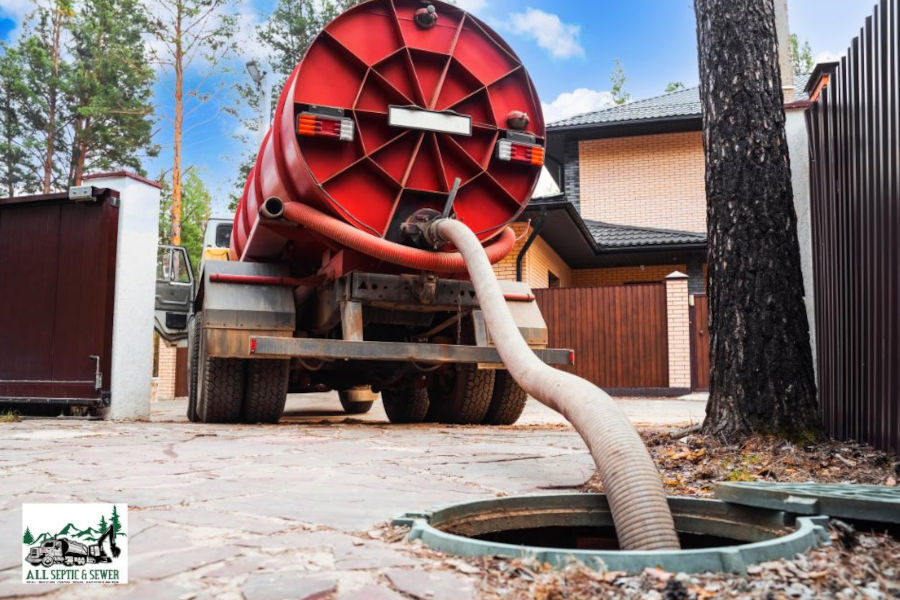Regarding home maintenance, some tasks grab all the attention—like mowing the lawn or fixing a leaky faucet. But what about your septic tank? Often overlooked, septic tank pumping is the unsung hero that keeps your home running smoothly. Without it, you could face messy backups, foul odors, and costly repairs.
All Septic & Sewer explores why septic tank pumping is so important and how it can save you from headaches down the line.
What Is Septic Tank Pumping?
Septic tank pumping involves clearing out the built-up waste materials that gather in your tank as part of its normal operation. When you flush a toilet or run a dishwasher or shower, wastewater flows into your septic tank. Solid waste settles at the bottom as sludge, while oils and grease float to the top as scum. Over time, these layers build up and must be pumped out to keep your system functioning correctly.
Think of it like changing the oil in your car—it’s a routine maintenance task that prevents more significant problems later. Your septic system could fail without regular pumping, leading to expensive repairs or even a complete replacement.
Why Is Septic Tank Pumping Essential?
Septic tank pumping isn’t just a routine chore—it’s a critical step in maintaining a healthy, functional home. Without it, your septic system could face serious issues that disrupt your daily life and drain your wallet. Here’s why this service is so important:
Prevents System Failure
A septic tank that has reached capacity can overflow wastewater into your home or yard. This situation is messy and inconvenient and can harm your property and create potential health hazards. Regular pumping ensures your system has enough space to handle incoming waste.
Saves You Money
Putting off septic tank pumping may seem like a way to save money now, but it often results in much larger expenses later when repairs are needed. Replacing a failed septic system can cost thousands of dollars, while pumping is a relatively affordable maintenance task.
Protects the Environment
A properly cared-for septic system stops dangerous bacteria and chemicals from seeping into the ground and contaminating water sources. You’re doing your part to protect the environment and community by scheduling regular pumping.
How Often Should Your Septic Tank be Pumped?
How often you need to pump your septic tank varies based on factors like the tank’s size, how many people live in your home, and how much water your household uses. Generally, most experts recommend pumping every 3–5 years.
However, if you notice signs of trouble—like slow drains, foul odors, or soggy areas in your yard—it’s best to call a professional right away.
Septic Tank Pumping Service – What to Expect
So, what happens during a septic tank pumping service?
- Inspection: A technician will inspect your system to assess its condition and identify any potential issues.
- Pumping: Using specialized equipment, the technician will remove sludge and scum from your tank.
- Cleaning: The tank is cleaned to ensure it’s in good working order.
- Maintenance Tips: Many professionals will provide tips for maintaining your system between pumpings.
Trust the Experts for Your Septic Tank Pumping Needs
While septic tank pumping might not be the most glamorous home maintenance task, it’s one of the most important. By staying proactive and scheduling regular service, you can avoid costly repairs, protect your property, and keep your system running smoothly for years to come.
If you’re due for a septic tank pumping, don’t wait until it’s too late. Trust the experienced team at All Septic & Sewer, a veteran-owned business serving Pierce, King, and Thurston Counties. We provide reliable, professional septic services to keep your system in top shape. Contact us today to schedule your service and give your septic system the care it deserves!



